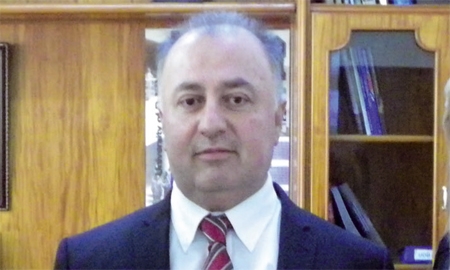“Kurdistan Region’s international relations were the first step on the road to our current economic boom. Our years under dictatorship really brought home the importance of democracy and being open to the world,” he says, adding that this belief resonates throughout the region’s institutions, including his university. “Kurdistan Region as a whole, including all our organisations, businesses and universities, has its hand extended to people from all nations.”
With regards to the University of Duhok, this open-minded approach has translated into collaborations with several universities abroad and participation in a number of foreign exchange programmes. For example, the university has been partnering with the Erasmus Mundus scholarship programme for the last five years and until recently, they were the only university in Iraq to do so.
These are the types of activities the university would like to see expanded in the future, including partnerships with UK universities. “All of the classes in the scientific faculties together with the Political and Sociology departments are taught in English. We would like to explore opportunities with British universities. We are looking forward to expansion,” Dr Dosky adds.
He believes that similarities between Kurdistan’s educational system and that of the UK promote close ties between the two countries. “More than 85 per cent of the students in our scholarship programme choose UK universities to complete their higher education, and most of the staff we have at this university are graduates from UK universities. The educational system we follow here is based on the British system, and all of our scientific colleges and faculties use English as the teaching language. We also collaborate with several UK universities, including Nottingham University and Leicester University. We send quite a few students there and share a number of projects, including the DeLPHE Programme,” he explains.
The growth in Kurdistan’s education sector, which now has more than 19 public and private universities, is a natural extension of the region’s positive economic climate, says Dr Dosky. The University of Duhok was established in 1992, with just two faculties of medicine and agriculture and 149 students. Today, it boasts nine faculties, more than 46 departments and over 11,000 students.
“Today, the effect of this university on the people here is clearly visible. We have 12 centres for different studies, which include every aspect of societal development. Education is very important for us, as most problems between different groups stem from illiteracy. I see the future here as very bright and promising,” he concludes.

0 COMMENTS